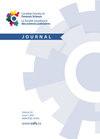Comparing jury focus and comprehension of expert evidence between adversarial and court-appointed models in Canadian criminal court context
IF 0.5
Q4 MEDICINE, LEGAL
Canadian Society of Forensic Science Journal
Pub Date : 2020-04-02
DOI:10.1080/00085030.2020.1748284
引用次数: 2
Abstract
Abstract The present adversarial system is often criticised for not working as well as it should in the area of expert scientific testimony. Yet scientific opinion evidence is an important aspect of present criminal trials. In addition to issues in the provision of expert evidence, triers of fact are challenged to understand complex scientific evidence. Several dynamics are at play that may impact on their ability to focus on and comprehend the science, and alternative models have been suggested to address these issues, including the use of court-appointed experts. This study examines juror focus on the science versus the persona/demeanour of the expert witness between the adversarial and court-appointed models for presentation of scientific evidence. Findings suggest that expert persona/demeanour continues to be a large focus area for jurors, that the CA model may be more resilient for ensuring greater focus on science, and that juror comprehension of science is somewhat better when presented via the court-appointed model. Results inform instruction of experts for giving opinion evidence as well as suggest the prudence of considering other models to improve the criminal justice system. Limitations as to the generalization of study results are discussed.比较在加拿大刑事法庭背景下,对抗性和法院指定模式下陪审团对专家证据的关注和理解
摘要目前的对抗性制度经常被批评在专家科学证词领域没有发挥应有的作用。然而,科学的意见证据是当前刑事审判的一个重要方面。除了提供专家证据方面的问题外,事实调查者在理解复杂的科学证据方面也面临挑战。一些动态因素可能会影响他们关注和理解科学的能力,已经提出了解决这些问题的替代模型,包括使用法院指定的专家。本研究考察了陪审员对科学的关注与专家证人在对抗性和法庭指定的科学证据出示模式之间的人格/举止。研究结果表明,专家人格/举止仍然是陪审员关注的一个重要领域,CA模型可能更具弹性,可以确保更多地关注科学,陪审员通过法院指定的模型对科学的理解也会更好。研究结果为专家提供意见证据提供了指导,并建议谨慎考虑其他模式以改进刑事司法系统。讨论了研究结果泛化的局限性。
本文章由计算机程序翻译,如有差异,请以英文原文为准。
求助全文
约1分钟内获得全文
求助全文

 求助内容:
求助内容: 应助结果提醒方式:
应助结果提醒方式:


